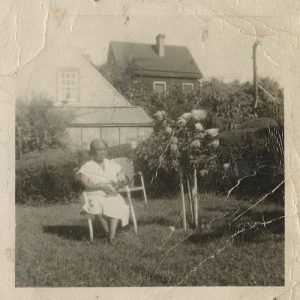About

Mamie Elizabeth Garvin (1888-1987) was born to Rebecca Mary Logan Bellinger and George Washington Garvin, in Charleston, South Carolina. Garvin became one of the first African American teachers hired to teach in the county’s public schools. In addition to teaching children, Fields was a pioneer in concept of children’s daycare facilities, adult education, organizing classes on James and Johns Islands in the early 1920s and developing the first vacation bible school for migrant workers in Charleston during the Depression. Fields retired in 1943, but remained a dedicated club woman, volunteering in numerous religious and civic organizations. She was a long-standing member of the National Association of Colored Women’s Clubs, Incorporated (NACWC) whose mission was to “Lift as They Climb,” through civic, social, recreational, educational, cultural, charitable and religious activities. Fields joined the City of Charleston Federation of Colored Women’s Clubs in 1916; cofounded the Modern Priscilla Club of Charleston in 1927; served as president of the South Carolina Federation of Colored Women’s Clubs (SCFCWC) from 1958 to 1964; and functioned as superintendent of the Marion Birnie Wilkinson Home for Girls, Cayce, South Carolina from 1960 to 1963. She was a past worthy matron of the Order of Eastern Star and served on Mayor J. Palmer Gaillard, Jr.’s city advisory committee of housing. The collection details Fields’ involvement with the National Association of Colored Women Clubs, Incorporated, and her role as state president of the South Carolina Federation of Colored Women’s Clubs (SCFCWC) in the late 1950s and early 1960s. Papers include organizational materials: meeting minutes, correspondence, newsletters and photographs. Many of the materials include photocopied images from Federation publications, programs and essays (1950-1985) detailing activities of the Coastal, Central/Marion Birnie Wilkinson, Pee Dee and Piedmont Districts. Additional records include materials related to Fields’ book Lemon Swamp (1983).
This collection was digitized and made freely available online through the generous support of Pivotal Ventures and the Digital Public Library of America.
